SUMMARY
This is AI generated summarization, which may have errors. For context, always refer to the full article.
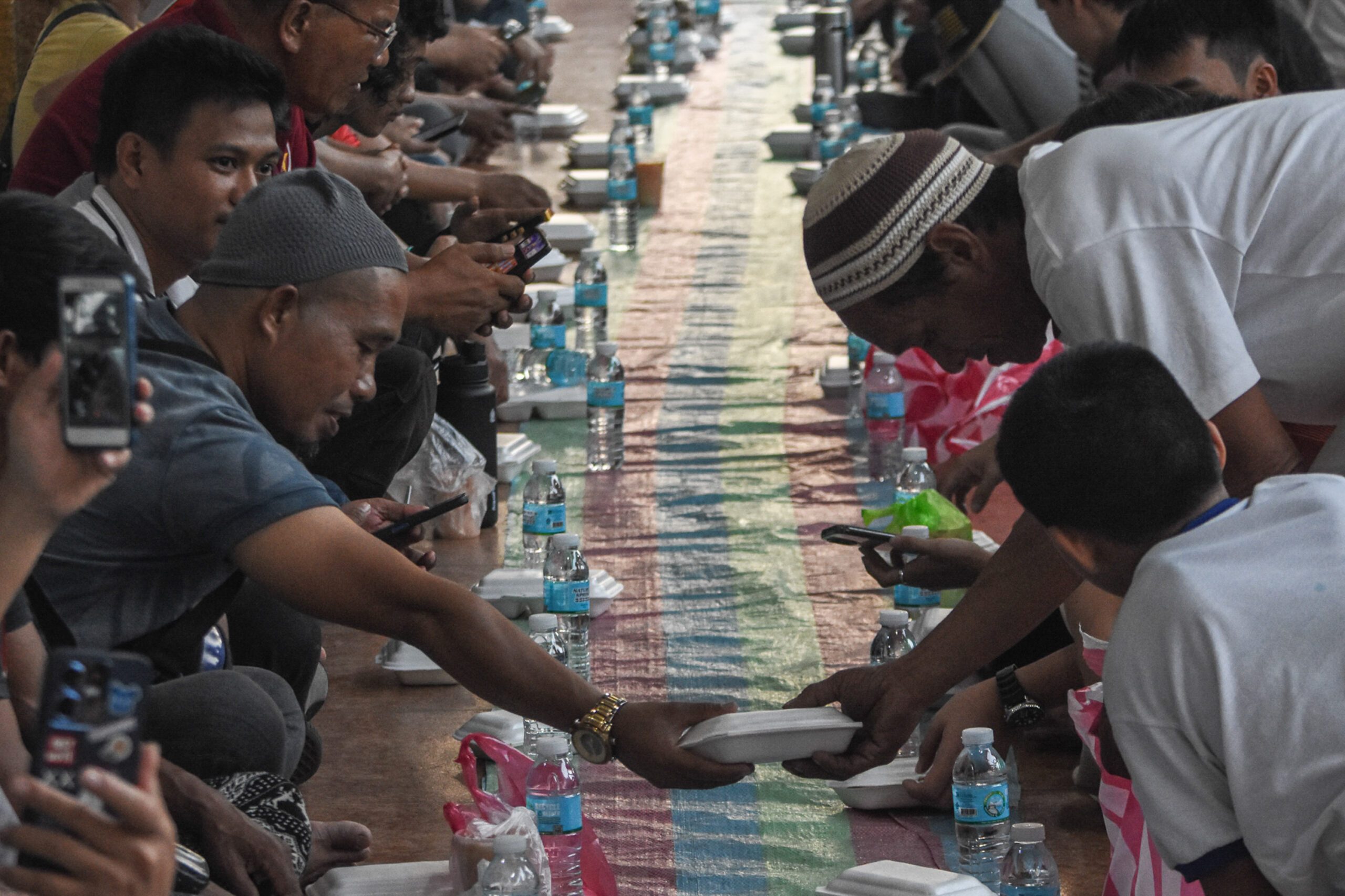
MANILA, Philippines – One by one, people trickled in shortly before sunset.
They sat down, facing each other, in front of food containers and water bottles lining the two sides of a long multicolored mat. Their leader, holding a megaphone, reminded them to settle down and keep themselves in order.
Then, the clock struck 6:07 pm. Slowly, they opened the containers to take their first meal – and to placate their grumbling stomachs – after abstaining from food and water for one whole day, from sunrise to sunset.
Many others – including one child, who held two food containers – brought their meals back home.
Shortly after eating, a call to prayer was chanted. The Muslims entered their mosque, faced in the direction of Mecca, Saudi Arabia, and performed their sunset prayer called maghrib.
A mix of relief after a long day of fasting, and reverence in another moment of prayer, filled the air at the Manila Golden Mosque in Quiapo, Manila, when Rappler visited this iconic place of worship on Wednesday, March 20.
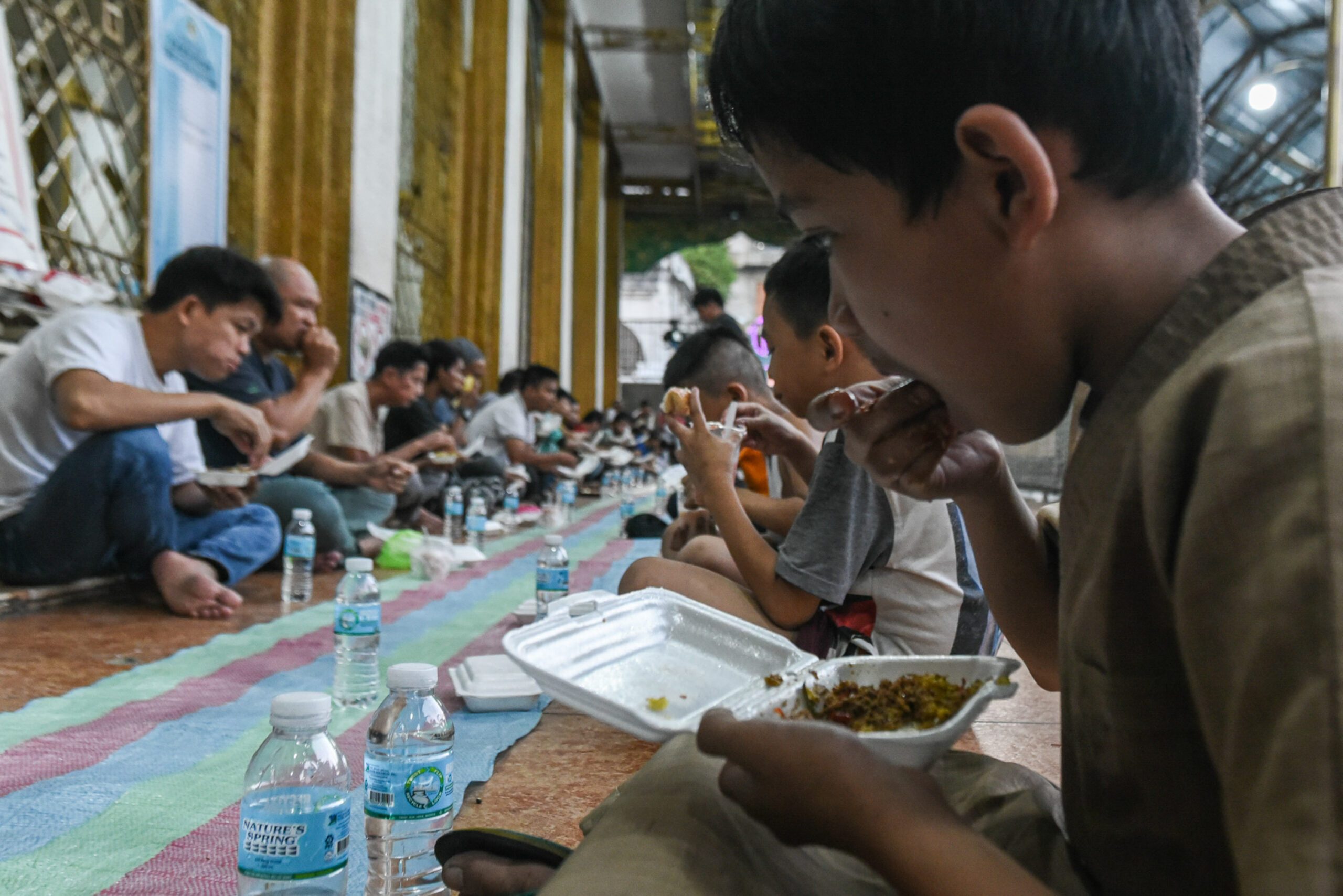
It’s the same scene every day at the Manila Golden Mosque for 29 or 30 days beginning March 12, as Muslims observe the fasting month of Ramadan. During this month, Muslims are obliged to fast from food and water from sunrise to sunset to discipline their senses and to unite themselves with the poor in their suffering.
What happens after sunset during Ramadan is called iftar, the breaking of the fast. (Watch the Rappler vlog below.)

‘Month of giving’
At the Manila Golden Mosque, iftar is extra special because it is more than filling one’s stomach after a long day of fasting. With the help of donors, iftar at the Manila Golden Mosque also feeds at least 300 less fortunate Muslims for each of the 29 or 30 days of Ramadan.
It’s a quiet source of fulfillment for the mosque – said to be the largest in Luzon – which was commissioned by then-first lady Imelda Marcos in 1976 for a Manila trip by the late Libyan dictator Muammar Gaddafi, which ended up being canceled.
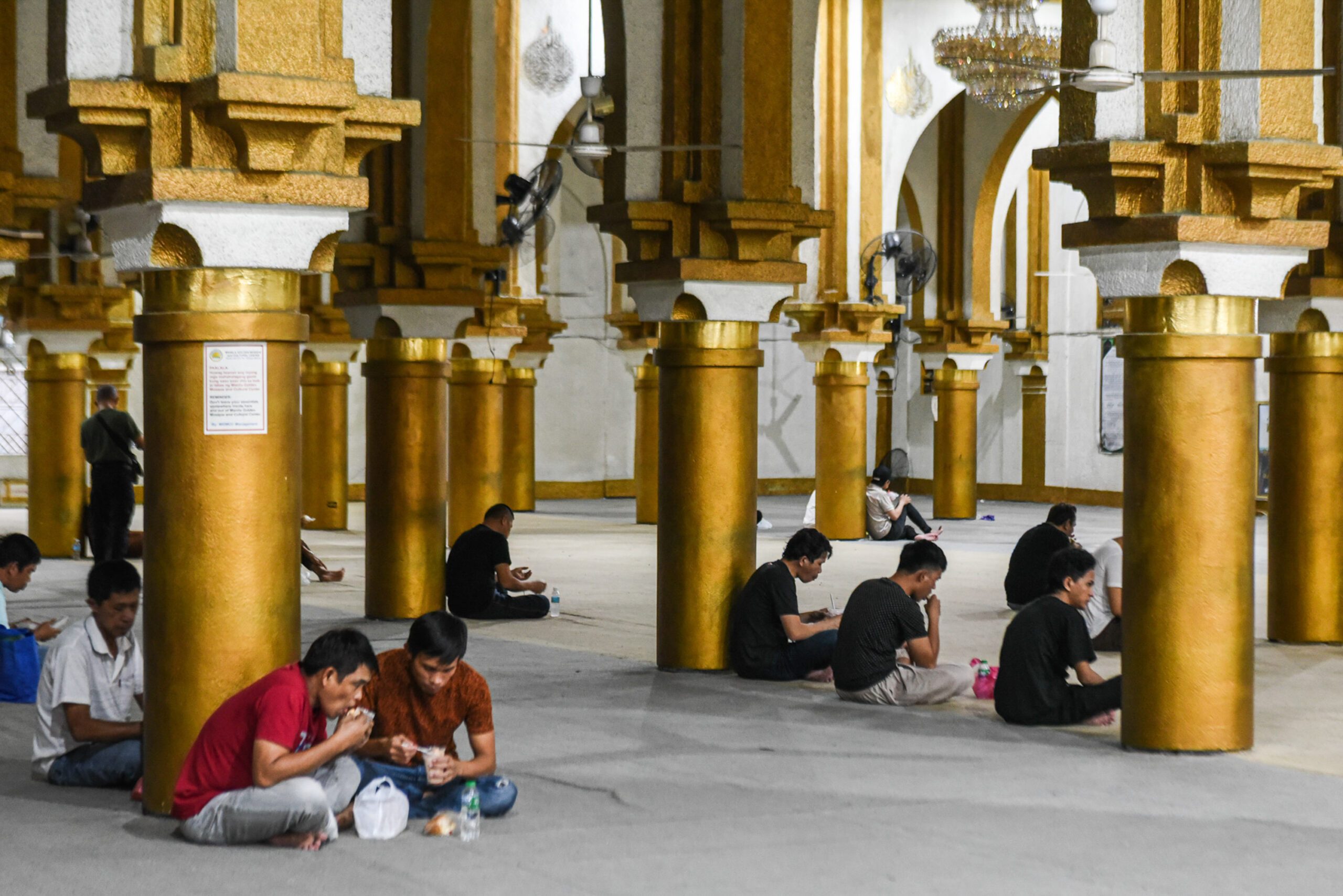
The administrator of the Manila Golden Mosque, Sultan Abdusalam “Gerry” Magarang, and its grand imam, Jalal Jamil, spearheaded this Ramadan Free Iftar program to encourage well-to-do Muslims to sponsor the iftar of those in need.
Jamil said their budget is P65 ($1.15) per meal for each of the 300 recipients of the free iftar. This means spending around P19,500 ($346) per night for the whole month of Ramadan.
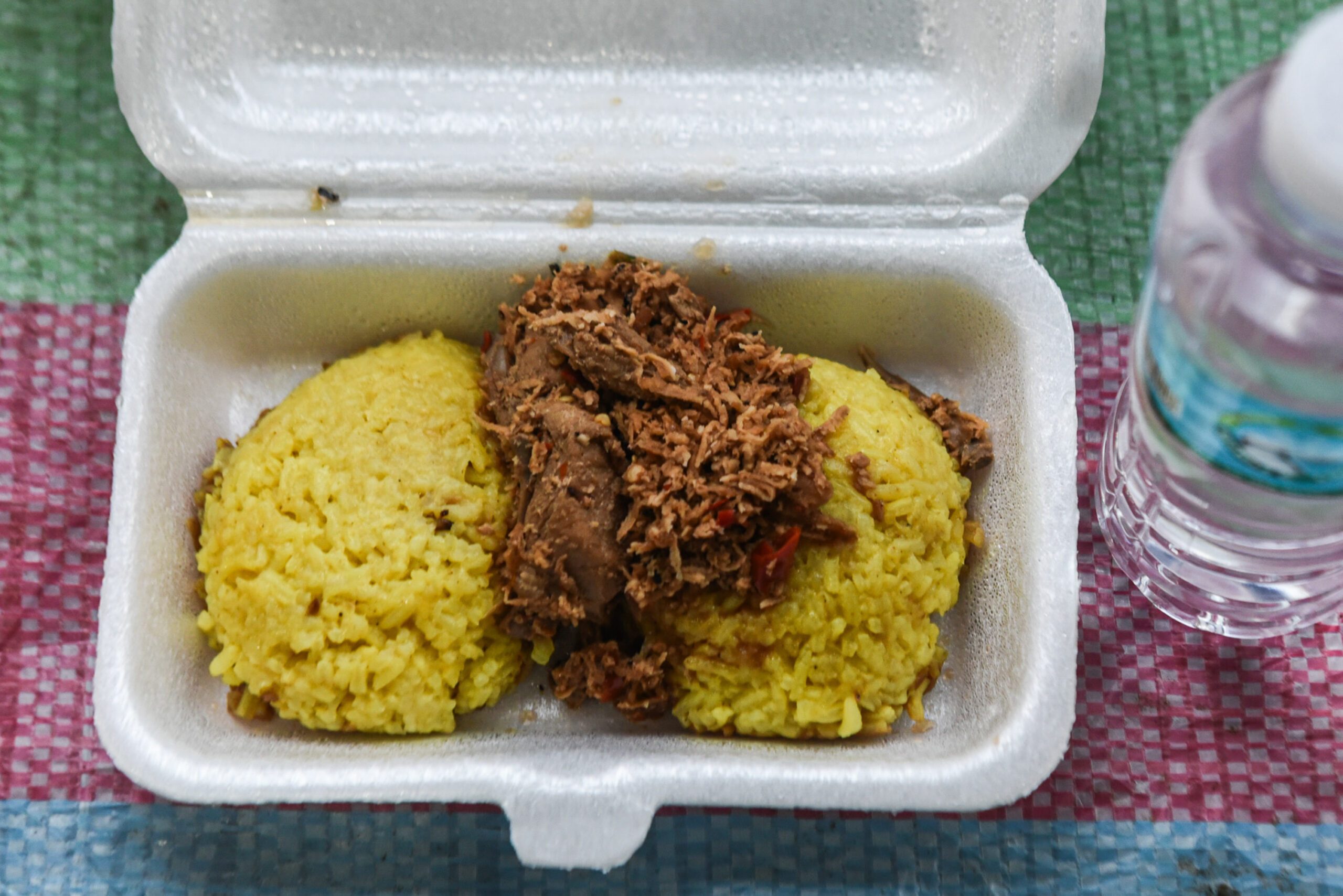
“This is to make our brothers and sisters feel that they have fellow Muslims who help in feeding the poor from the bottom of their hearts,” Jamil told Rappler in Filipino.
It is also a way to make Muslims understand the value of giving. “Sharing the iftar is very important because, aside from having helped others, you also gain a reward, like the reward of one who fasts,” said Jamil.
According to the teachings of the Prophet Muhammad, a Muslim will gain twice the rewards of fasting if he or she feeds a fellow Muslim who is fasting as well. “Now, if you feed 100 people, it means that the rewards of your fasting are multiplied by 100 times,” the grand imam of Manila Golden Mosque said.
Jamil explained why Ramadan goes beyond avoiding food and drink.
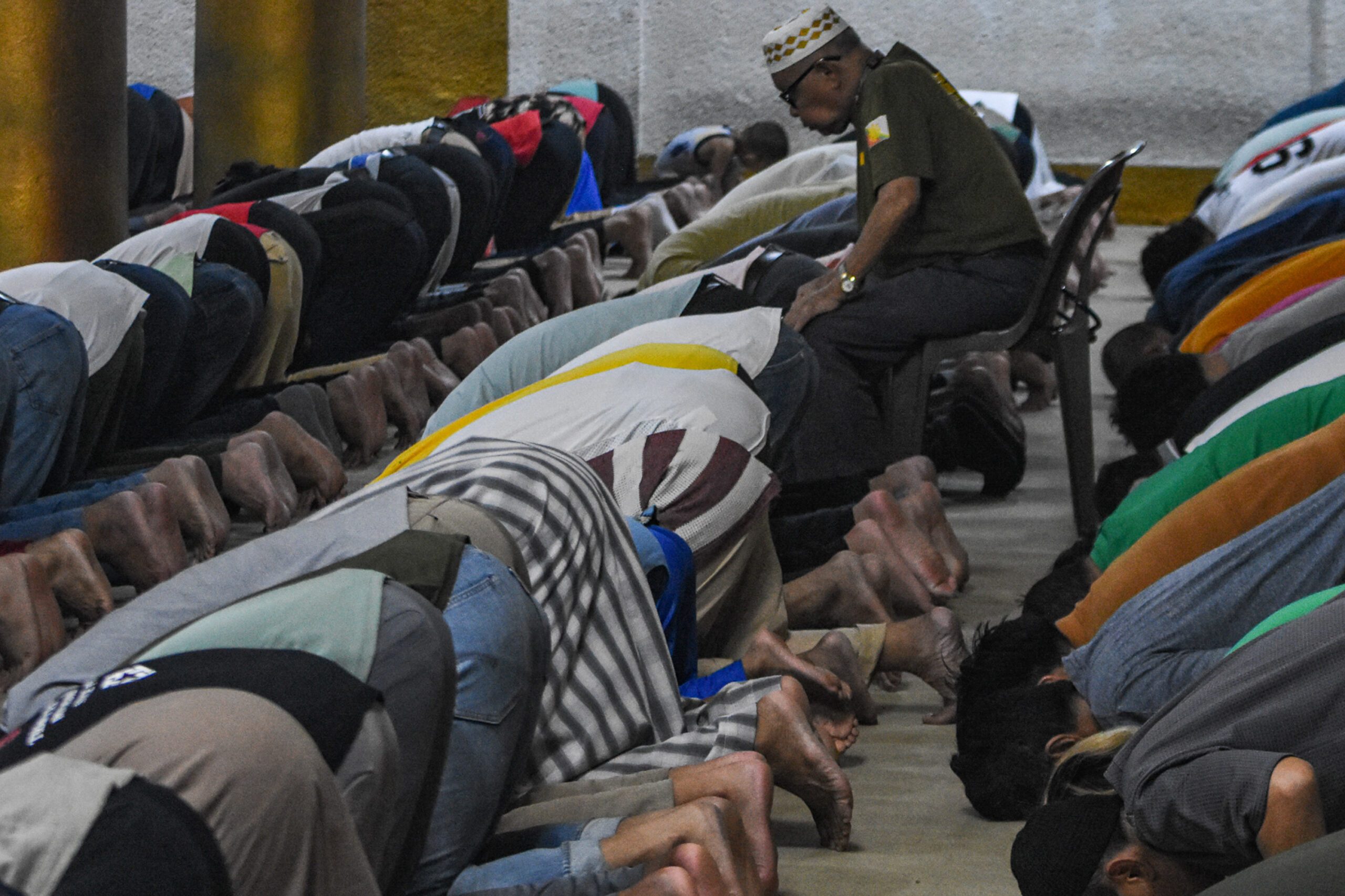
“Many people think that Ramadan fasting is just a prohibition on eating or drinking. That is not the main theme of Ramadan,” he said.
“Instead, Ramadan is like the coming of a doctor who heals what is wrong or what we do that goes against the teachings of Islam. Or Ramadan is like the coming of a teacher who teaches us to perform works of charity so that we can feel what is felt by our brothers and sisters who are struggling in life,” Jamil continued.
Magarang told Rappler that Ramadan is “a month of peace, a month of tranquility, a month of celebration of being a Muslim.”
Like Jamil, Magarang said in Filipino, “This is a month of giving because fasting is teaching oneself – for example, if one is rich – to feel what poor people feel.” – Rappler.com
Add a comment
How does this make you feel?

![[The Wide Shot] Meet the ‘muslim’ Jesus](https://www.rappler.com/tachyon/2024/06/wide-shot-catholic-muslim.jpg?resize=257%2C257&crop_strategy=attention)

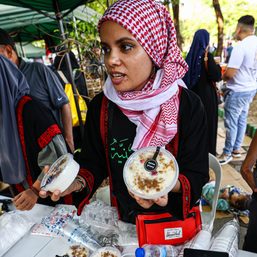
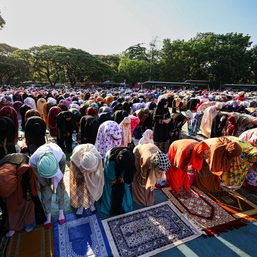
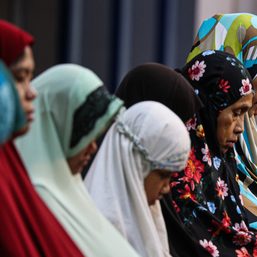
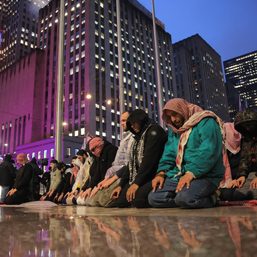
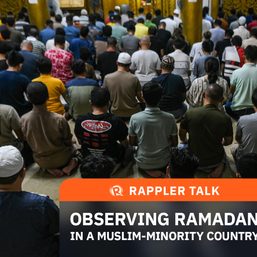
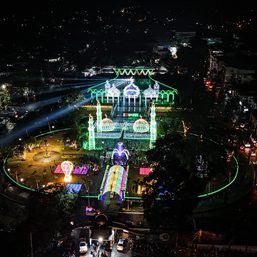
There are no comments yet. Add your comment to start the conversation.